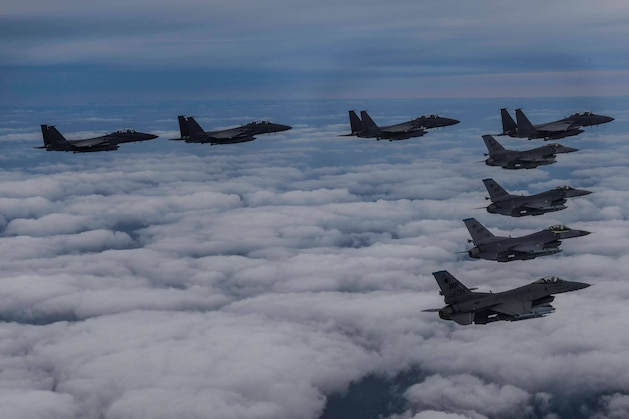In the Netherlands, the possibility of providing F-16 fighter jets for the defense of Ukraine is being discussed. Which is why the small Benelux country is so committed.
“All options are on the table, including the delivery of F-16 jets.” The statement does not come from a German politician or even the chancellor himself. Olaf Scholz has the question of whether the Federal Republic would now also deliver fighter jets after battle tanks , already answered with a clear no. The phrase that is currently the subject of so much debate in Europe and beyond comes from Dutch Foreign Minister Wopke Hoekstra.
Hardly any other European country is so committed to providing military support to Ukraine against the Russian invaders. Just two days after the war began on February 24, 2023, the Netherlands sent 50 hand-held anti-tank weapons to Ukraine, along with 100 sniper rifles and 30,000 rounds of ammunition. By early December, The Hague had already delivered military supplies worth almost a billion euros. For 2023, Mark Rutte’s government has pledged further support of 2.5 billion euros. For comparison, support from the much larger Germany currently stands at 2.2 billion this year.
77 percent of the Dutch believe that other European countries that are under attack must be helped – 80 percent of the Dutch are seriously concerned about the war. The values are higher than in many European countries. But where does the Dutch willingness to support the Ukrainians in their defense come from?
Tim Sweijs, Research Director at The Hague Center for Strategic Studies (HCSS), sees various reasons for this. “The Dutch have always worked to become a reliable international partner since the Second World War,” explains the expert. With Joe Biden as the democratic US President and the war in Ukraine, the former alliance with the Netherlands received new impetus.
But there is another reason: Article 90 of the Dutch constitution has been written since 1953: “The government promotes the development of the international legal order.” In the case of Ukraine, a sovereign state was attacked and areas of the country were annexed in violation of international law – a massive encroachment into the international legal order.
The most important reason, however, dates back a long time. When Russia annexed Crimea in violation of international law in 2014, a civilian plane got caught between the fronts. The Dutch MH-17 was allegedly hit by a missile. Suspicion quickly fell on Russia, and the evidence grew. 176 Dutch people died in the plane crash: “For a country of 17 million inhabitants, that’s a lot, a lot. Everyone knows someone who knows someone who has lost someone,” explains Sweijs.
Even then, Rutte was prime minister, and clarifying the circumstances of the MH17 crash became a permanent task of his government. With the outbreak of the Ukraine war, the old wound reopened.
For expert Sweijs, however, it is also clear that the Netherlands will not dare to go it alone with the fighter jets. “Not only does that seem very unlikely to me, it would also be very unreasonable,” Sweijs said. The Netherlands has often been involved in major conflicts. They played a key role in the Bosnian war and in the Kosovo war, as well as in the peacekeeping mission in Afghanistan.
“The Netherlands have also learned from these conflicts,” Sweijs adds: “An intensive exchange is needed with potential allies so that the Netherlands is not left alone in the end.” What he means: The Dutch blue helmet soldiers did not intervene sharply enough, when war criminal Ratko Mladic committed genocide in Srebrenica in 1995. The role of the Dutch Armed Forces remains controversial to this day. In the Ukraine conflict, the country wants to show more responsibility – and act in a coordinated manner.
In any case, Sweijs’ Center for Strategic Studies warns against making a hasty decision. “The dilemma is that we have to support Ukraine so that it can defend itself. As soon as the West stops providing this support, Ukraine will lose this war.” On the other hand: “There is a risk that the Russian leadership will feel cornered and the conflict will escalate as a result.”
It is by no means certain that the Netherlands will actually deliver fighter jets. But, as Prime Minister Mark Rutte said: “There are no taboos, but a delivery of fighter jets would be a big step.”








